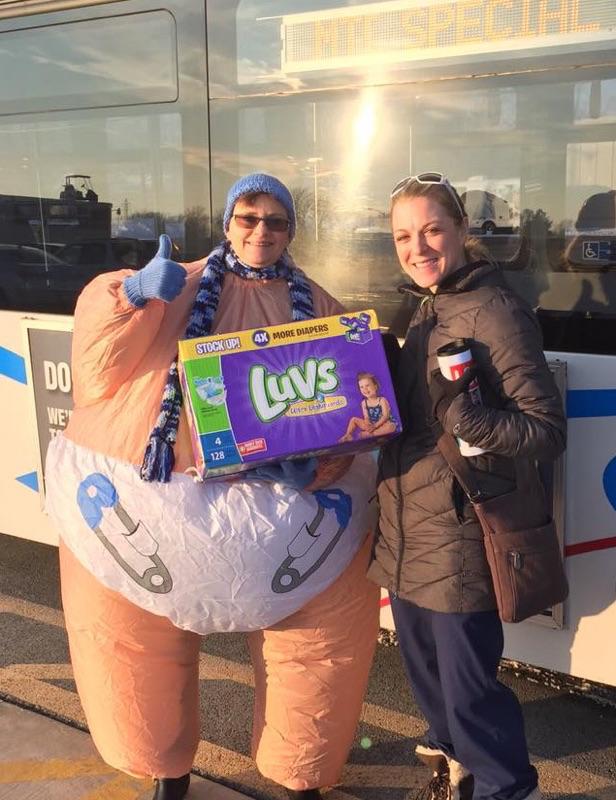Diaper bank provides what Illinois assistance programs cannot
Nov 2, 2016
Susan George saw a need in her community.
She knew that the Illinois Link Card could be used to purchase milk, vegetables and even “Pear Zucchini Corn” baby food. What she realized only after watching an episode of CNN Heroes was that the card does not cover perhaps the greatest expense for new parents: diapers.
George founded the Bottom Line Diaper Bank two and a half years ago after realizing that diapers were not allowed to be purchased under any Illinois assistance programs.
George moved to Champaign county in 2008 and four years later, she became an integral part of the community by creating the diaper bank.
“Volunteering is something I grew up with because my parents were really dedicated to it,” George said.
Get The Daily Illini in your inbox!
The organization relies exclusively on volunteers to participate in repacking donated diapers and in hosting their own drives to distribute the diapers to families in need.
“I have learned so much about the kinds of people in Champaign and Urbana and Rantoul that I would never have known,” George said. “People who are really just unsung heroes who work with children, who go to do their jobs every day and receive our diapers.”
While diapers are sold in supermarkets and convenience stores alongside groceries and food items, food stamps are solely for food. Not even the food and nutrition service Women, Infants, and Children covers diapers, although George has formed a relationship with them and they now share storage space.
On average, babies need their diapers changed 50 times per week, George said. Just as babies cannot live healthy lives without nutrition, they cannot do so without diapers. George decided that making a family choose between hot water and diapers was not something she would allow to happen.
“You have to sacrifice some other expense, some other necessity, in order to get them,” George said. “So that may be food, or utilities, or cash, or things that one needs to live. So that’s really why we started it.”
George said they provide organizations and groups looking to volunteer with a kit instructing them on the basics of hosting a diaper drive, but they leave it up to the group to decide how they wish to proceed in terms of getting the word out and actual distribution.
“Sometimes they make it a competition, to see which department can raise the most or can donate the most diapers,” George said. “We also give people the option of donating cash, and checks can be made out to the Bottom Line Diaper Bank.”
Melissa Roman, graduate student in social work, participated in a semester-long project to help out the diaper bank.
“I volunteered for the Bottom Line Diaper Bank last fall semester. My team and I worked to bring awareness on the diaper need that exists,” Roman said. “We also held a fundraiser with a local store to fundraise money to donate diapers.”
George puts in countless hours to maintain her organization, but emphasized that everything counts. She said they thrive off of dedicated volunteers, monthly volunteers, and even those who help out just once.
“Giving back whatever you can via your own parts and your own labor is really important because everyone has the ability to do that,” George said, “they just need to seek out the right opportunity for them.”
While George’s organization is not yet large enough for paid staff, she expressed that the diaper bank has made a lasting impact on the area so far, and they have made themselves known to both volunteers and those in need of diapers.
“What I think about every day when I continue working toward the success of the diaper bank is that we’re giving, we’re hopefully giving the kids who receive the diapers a better start,” George said. “It’s not the diapers that matter as much as the children in them.”






